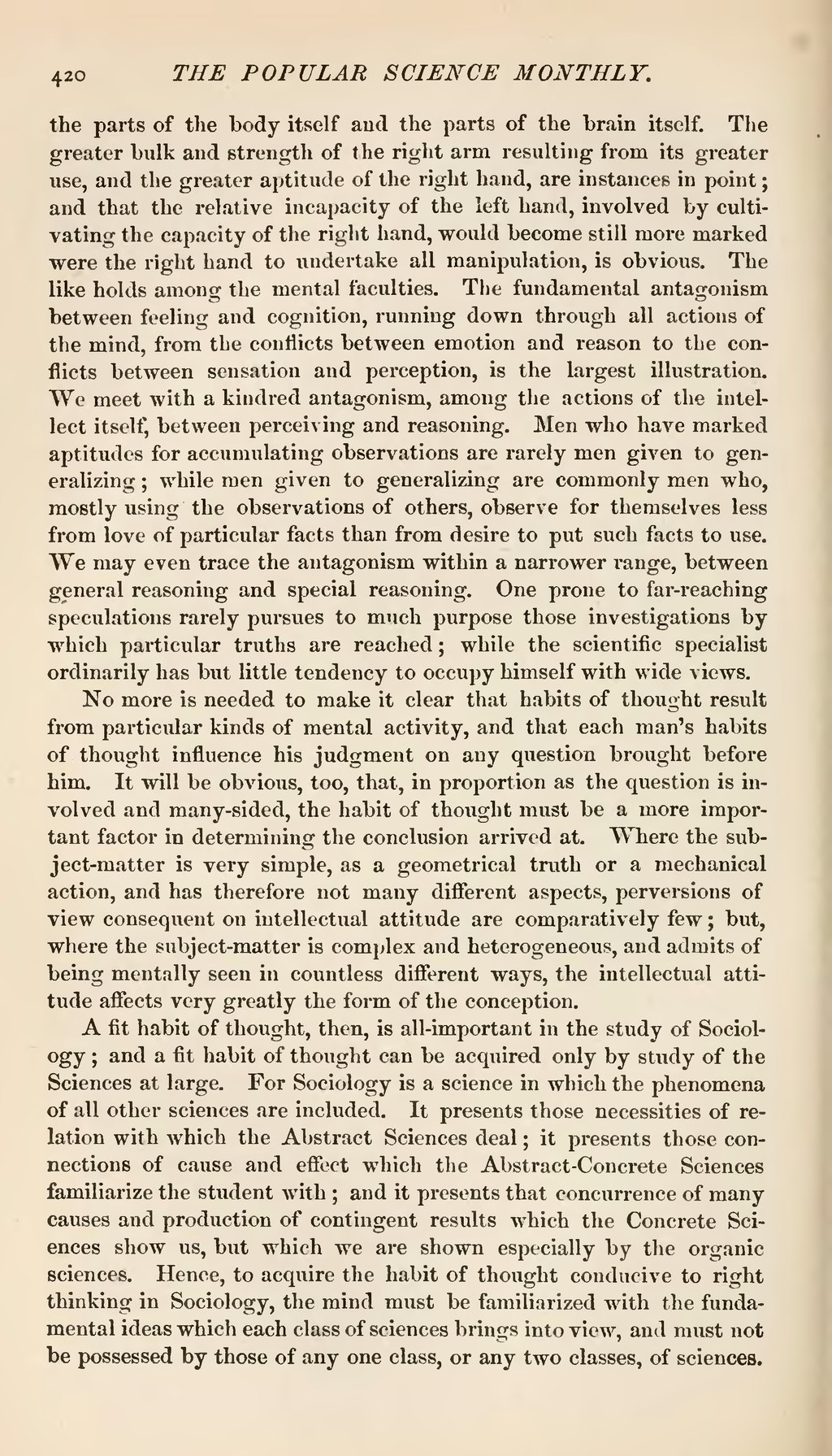the parts of the body itself and the parts of the brain itself. The greater bulk and strength of the right arm resulting from its greater use, and the greater aptitude of the right hand, are instances in point; and that the relative incapacity of the left hand, involved by cultivating the capacity of the right hand, would become still more marked were the right hand to undertake all manipulation, is obvious. The like holds among; the mental faculties. The fundamental antagonism between feeling and cognition, running down through all actions of the mind, from the conflicts between emotion and reason to the conflicts between sensation and perception, is the largest illustration. We meet with a kindred antagonism, among the actions of the intellect itself, between perceiving and reasoning. Men who have marked aptitudes for accumulating observations are rarely men given to generalizing; while men given to generalizing are commonly men who, mostly using the observations of others, observe for themselves less from love of particular facts than from desire to put such facts to use. We may even trace the antagonism within a narrower range, between general reasoning and special reasoning. One prone to far-reaching speculations rarely pursues to much purpose those investigations by which particular truths are reached; while the scientific specialist ordinarily has but little tendency to occupy himself with wide views.
No more is needed to make it clear that habits of thought result from particular kinds of mental activity, and that each man's habits of thought influence his judgment on any question brought before him. It will be obvious, too, that, in proportion as the question is involved and many-sided, the habit of thought must be a more important factor in determining the conclusion arrived at. Where the subject-matter is very simple, as a geometrical truth or a mechanical action, and has therefore not many different aspects, perversions of view consequent on intellectual attitude are comparatively few; but, where the subject-matter is complex and heterogeneous, and admits of being mentally seen in countless different ways, the intellectual attitude affects very greatly the form of the conception.
A fit habit of thought, then, is all-important in the study of Sociology; and a fit habit of thought can be acquired only by study of the Sciences at large. For Sociology is a science in which the phenomena of all other sciences are included. It presents those necessities of relation with which the Abstract Sciences deal; it presents those connections of cause and effect which the Abstract-Concrete Sciences familiarize the student with; and it presents that concurrence of many causes and production of contingent results which the Concrete Sciences show us, but which we are shown especially by the organic sciences. Hence, to acquire the habit of thought conducive to right thinking in Sociology, the mind must be familiarized with the fundamental ideas which each class of sciences brings into view, and must not be possessed by those of any one class, or any two classes, of sciences.
